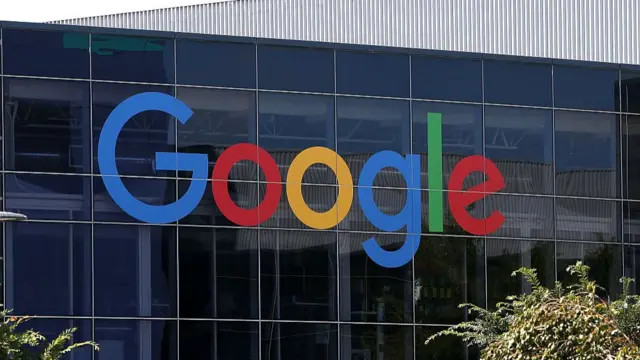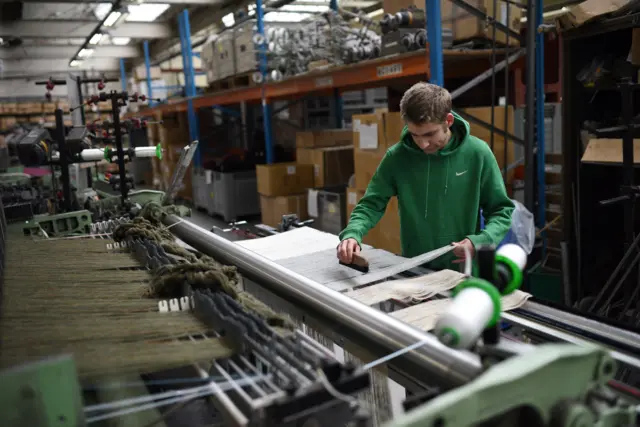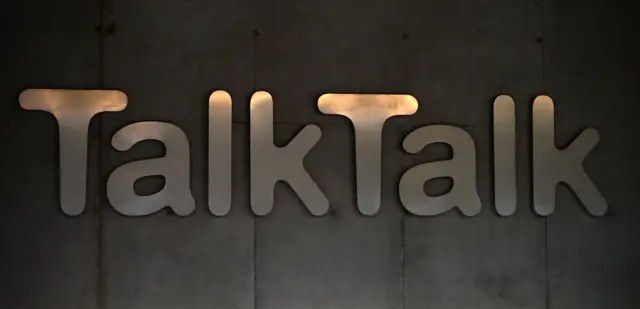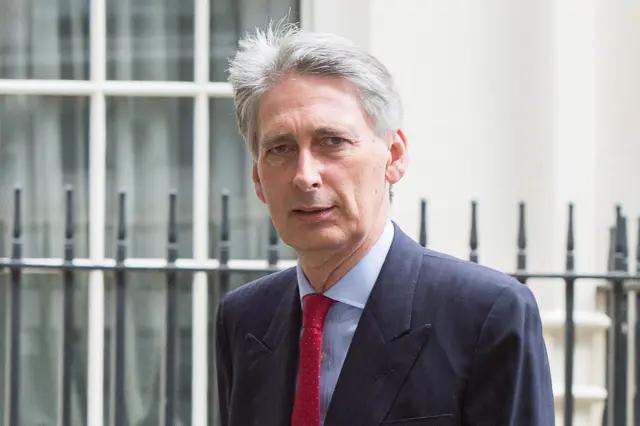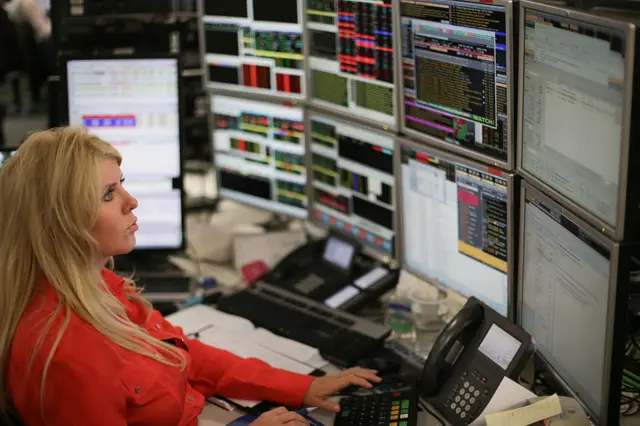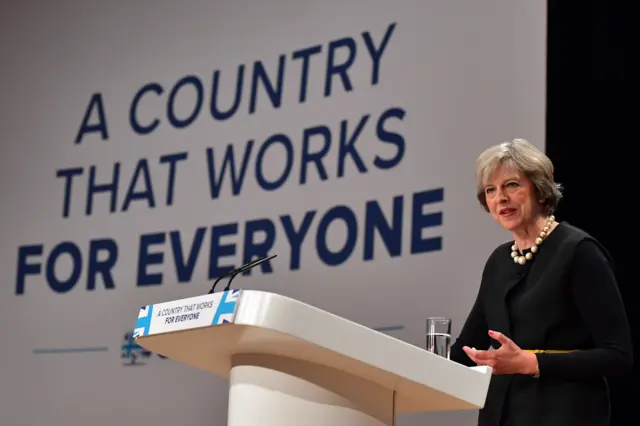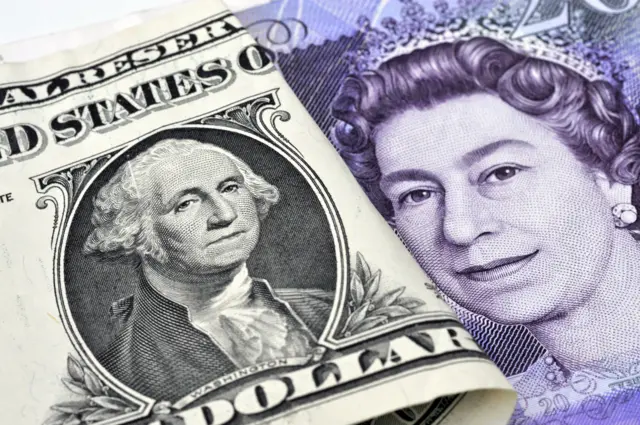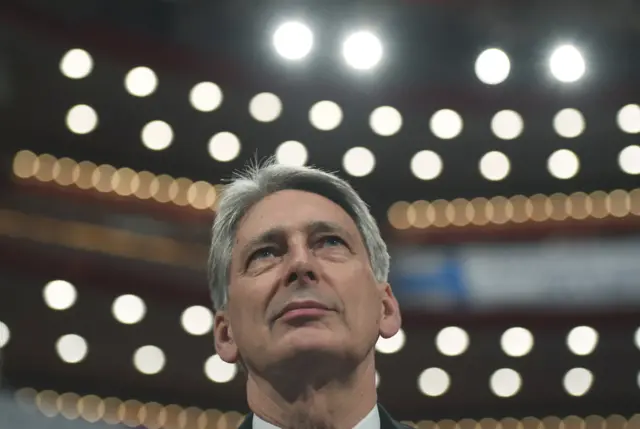Pound recovers some lost groundpublished at 11:29
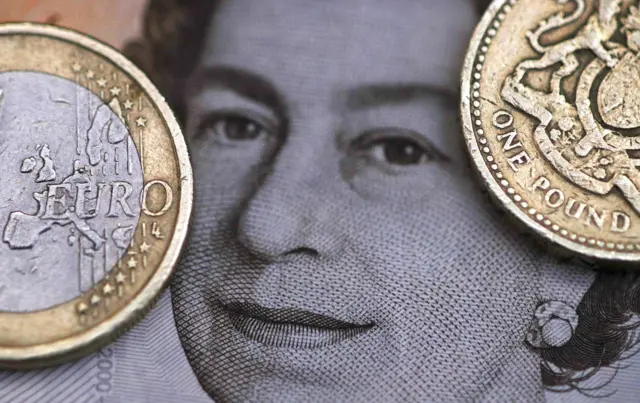 Image source, Reuters
Image source, ReutersThe pound earlier came within half a cent of hitting a 31-year low against the dollar. It also touched a three-year low against the euro as markets digested Theresa May setting a deadline for the start of Brexit talks.
The pound has since made back some ground, but is still lower than where it started the day.
Chris Beauchamp, chief market analyst at online trader IG, put the slight recovery down to a survey which showed the UK's manufacturing sector grew strongly in September.
"Another rise in the UK’s manufacturing PMI helped sterling to recover some of its losses, and while the move this morning has garnered plenty of attention it is a pale imitation of the action seen in the immediate aftermath of the Brexit vote," he said.


